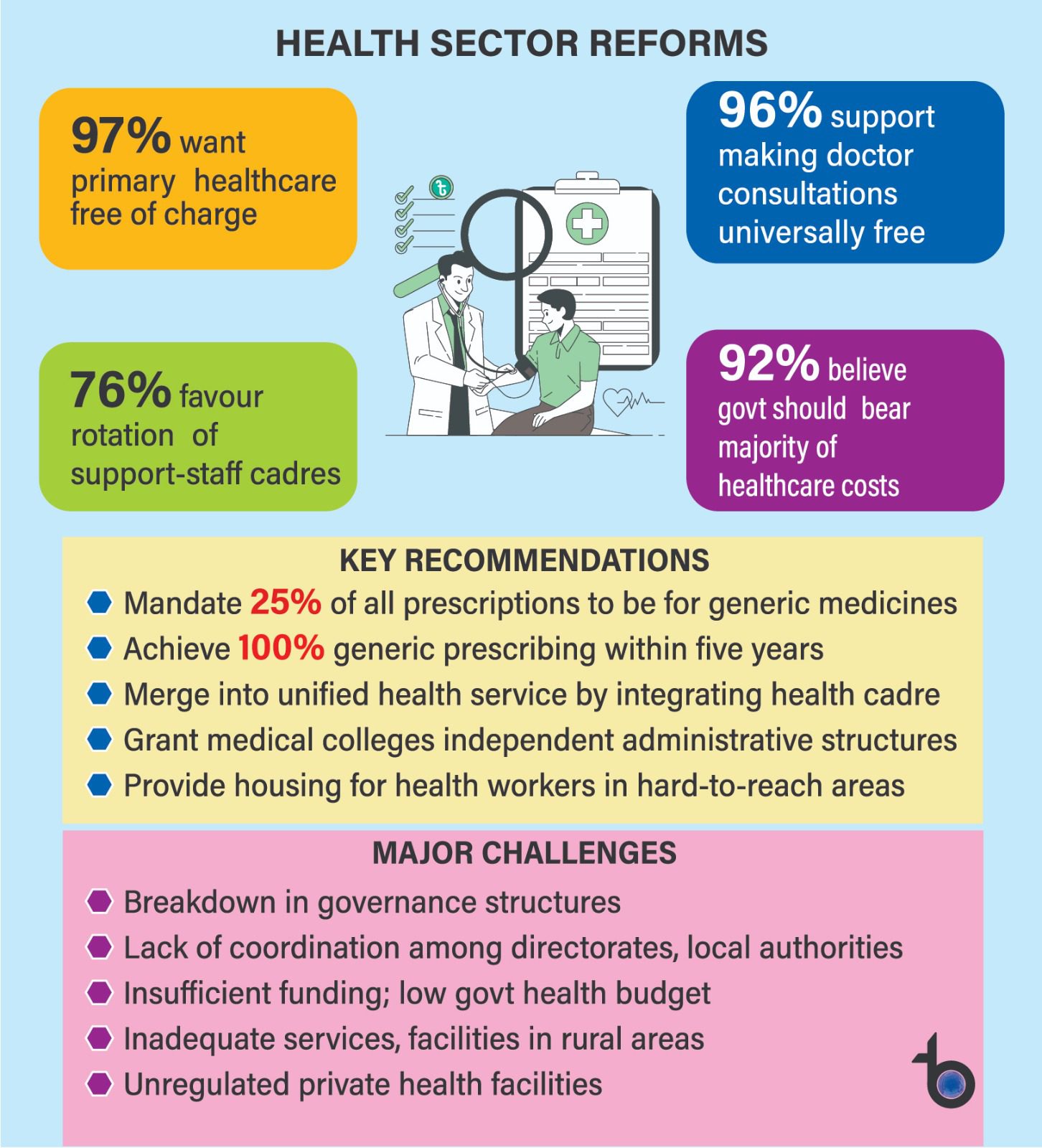The Health Reform Commission on Monday submitted a far-reaching set of recommendations to Chief Adviser Muhammad Yunus, calling for healthcare reform that includes making primary healthcare a constitutional right and eliminating unethical influence from the pharmaceutical industry.
The 322-page report, handed over at the Chief Adviser’s official residence, urges the interim government to pass a Primary Healthcare Act by ordinance and amend the constitution to guarantee free primary care for the poor.
“This report addresses problems that have persisted in the health sector for decades. If we can begin to resolve these, it will be a truly groundbreaking step,” said CA Yunus, instructing relevant authorities to act swiftly on the commission’s immediate recommendations.
Led by Dr AK Azad Khan, the commission also proposed that 5 per cent of the GDP and at least 15 per cent of the national budget be allocated to health. Currently, the health sector receives only about 5 per cent of the budget — far below the international benchmark.
The report suggests the establishment of Bangladesh Health Service, a new independent body to replace the existing BCS (Health) cadre, with its own Public Service Commission and oversight framework to ensure competence and neutrality in appointments.
In a notable move against conflicts of interest in the medical profession, the report recommends banning direct marketing by pharmaceutical company representatives to doctors.
All product information must be sent electronically or by post, and any attempt to influence doctors through free samples or gifts should be ‘completely prohibited’.
The commission also urged doctors to prescribe 25 per cent of medicines by their generic names initially, with a goal of 100 per cent within five years, and called for modernising the Essential Drugs Company and improving procurement to ensure medicine quality.
The commission called for mandatory free treatment for the ultra-poor, with 10 per cent of poor patients receiving free care at private hospitals. It also urged an update to the essential medicine list every two years and proposed offering free or subsidised medicines at primary care level.
The report also did not shy away from exposing long-standing financial mismanagement. It cited over 8,000 unresolved audit objections between 1998 and 2003, involving over Tk 6.6 lakh crore. A staggering 95 per cent of the health division’s objections relate to revenue collection, underlining systemic issues in oversight and accountability.
“The current financial monitoring systems are inadequate. This weakens the overall health system and leaves room for large-scale mismanagement,” said Syed Akram Hossain, a commission member, during a media briefing.
The 12-member Health Reform Commission was formed in November 2024 in response to growing public demand for a fairer, more accountable healthcare system. Its findings aim to address inequities in access, chronic underfunding, and the commercialisation of care that disproportionately impacts Bangladesh’s poor.
Meanwhile, other key reforms include establishing physiotherapy units in public hospitals, creating a special medical police unit to curb corruption, enacting over a dozen new laws, including the Bangladesh Health Service Act, Health Safety Act, and Hospital and Diagnostic Accreditation Act, and giving private actors a role in managing village-level community clinics.


